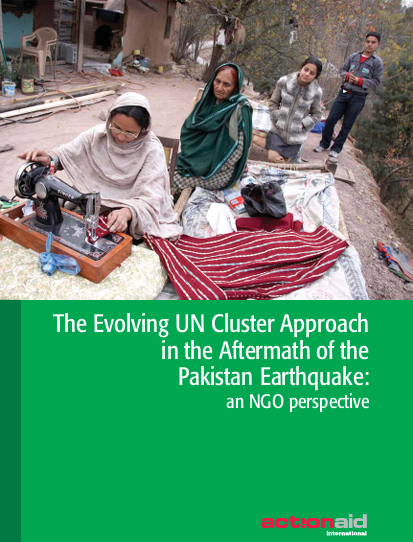
The aim of this report is to highlight issues which need to be “factored in” to the development of the cluster approach, a key aspect of the UN humanitarian reform agenda. The intention is to provide an assessment of the practical value of the approach in Pakistan and the implications of this for the humanitarian reform agenda. A summary of the main findings can be found in ‘Action Points’ in Section 2 of this report. A point to be acknowledged from the outset is that the Pakistan earthquake was the first occasion in which the cluster approach was implemented in a disaster response situation, and therefore it is too early for the validity of the approach to entirely stand or fall by experiences in Pakistan. There are, however, valuable lessons to be learned from the implementation of the approach there. In broad terms, the earthquake response was regarded as having been effective, particularly as the feared second wave of winter deaths was avoided. Pim Kramm, the Deputy Head of the Dutch Humanitarian department, commented that operations worked well in Pakistan and he felt a tangible difference between his visit to Pakistan and other disaster zones. Key factors identified as affecting the success of the response, after initial difficulties, were the high level of cooperation from the Pakistani government and the relatively mild winter. It is unclear how much of a difference the cluster approach made itself.
